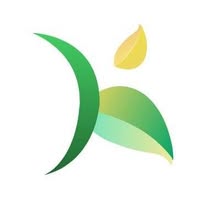Backward integration agriculture refers to a strategy where agribusinesses take control of their supply chain by managing the procurement of raw materials directly. For instance, a food processing company may own farms to source crops directly instead of relying on third-party suppliers.
Farmer communities have always been the cornerstone of agricultural progress, fostering collaboration, knowledge-sharing, and resilience among farmers. In today’s interconnected world, these communities are evolving into dynamic platforms that address modern challenges while promoting growth and sustainability. Platforms like Krishify farmer communities are at the forefront of this transformation, empowering farmers with the tools and resources they need to thrive.
FPO digitisation refers to the integration of digital tools and systems to streamline the operations of Farmer Producer Organisations. These organisations, often formed by small and marginal farmers, play a pivotal role in collective marketing, bulk procurement, and improving bargaining power. Digitising their operations enhances transparency, reduces inefficiencies, and fosters better decision-making.
But many FPOs still operate with pen-and-paper records, scattered data, and slow communication channels. That’s where digitisation comes in. FPO digitisation simply means using digital tools apps, sensors, platforms, and data to help these groups run better, make smarter decisions, and support their member farmers more effectively.
Enhancing traceability from the point of origin up until the end-user-for transparency-Backward integration proceeds with the aim of assuring sustainability with backward integration and infinite monitoring of agricultural practices, thus rendering companies with data-backed competitive advantage over assured source and grade.
- SocialBookmarkingGuide New
- SocialBookmarkingPlatform New
- SocialBookmarkingPage New
- SocialBookmarkingOnline New
- SocialBookmarkingNetwork New
- SocialBookmarkingMastery New
- SocialBookmarkingMaster New
- SocialBookmarkingLinks New
- SocialBookmarkingLab New
- SocialBookmarkingHub New
- SocialBookmarkingPlus New
- SocialBookmarkingFinder New
- SocialBookmarkingExpertise New
- SocialBookmarkingExpert New
- SocialBookmarkingEngine New
- SocialBookmarkingDaily New
- SocialBookmarkingCollect New
- SocialBookmarkingCentral New
- SnipStack New
- SimpleSocialBookmarking New
- SocialBookmarkingToolsPro New
- UltimateSocialBookmarking New
- Tuff Classifiedads New
- TopSocialBookmarking New
- The Quikads New
- TagNest New
- TagAndSave New
- SocialTagger New
- SocialBookmarkingZone New
- SocialBookmarkingWorld New
- seobookmarking New
- SocialBookmarkingTools New
- SocialBookmarkingToolbox New
- SocialBookmarkingSpot New
- SocialBookmarkingSpace New
- SocialBookmarkingSolutions New
- SocialBookmarkingSite New
- SocialBookmarkingService New
- SocialBookmarkingPro New
- BookmarkSphere New
- Get Backlink SEO New
- FreeSocialBookmarking New
- FavTag New
- FastSocialBookmarking New
- EasySocialBookmarking New
- 100+ Bookmarking Sites List New
- Easy Backlink SEO New
- Digital 24Hour New
- ClipNShare New
- GlobalSocialBookmarking New
- BookmarkingSocial New
- bookmarking New
- bookmarkgroups New
- BookmarkBazaar New
- blogbookmark New
- BestSocialBookmarking New
- Backlinks SEO New
- Apna Yatra New
- MarkifyHub New
- Segi Social New
- SaveRipple New
- SaveAndShare New
- Repur Tech New
- QuickSocialBookmarking New
- QuickBookmarks New
- PremiumSocialBookmarking New
- PowerfulSocialBookmarking New
- MySocialBookmarking New
- Aphel Online New
- listbookmarking New
- LinkPocket New
- LinkNest New
- LinkHive New
- Kinked Press New
- Jordan Sheel New
- Help 4 SEO New
- googlebookmarking New
